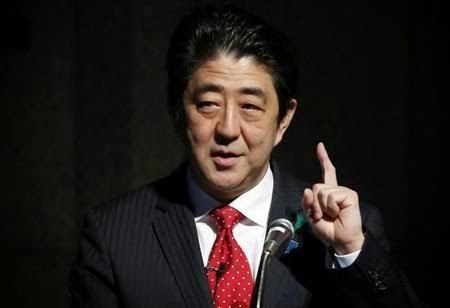| Online: | |
| Visits: | |
| Stories: |

| Story Views | |
| Now: | |
| Last Hour: | |
| Last 24 Hours: | |
| Total: | |
JAPAN: State secret law to take effect Dec 10
 |
|
Prime Minister Shinzo Abe
AP photo
|
http://www.japantoday.com/category/politics/view/state-secret-law-to-take-effect-dec-10?utm_campaign=jt_newsletter&utm_medium=email&utm_source=jt_newsletter_2014-10-03_PM
State secret law to take effect Dec 10
POLITICS OCT. 03, 2014 – 02:40PM JST ( 38 )
State secret law to take effect Dec 10
TOKYO —
A controversial law on protecting state secrets will go into effect on Dec 10, the government said Thursday.
The government of Prime Minister Shinzo Abe railroaded the bill through the Diet last December, despite strong protests from opposition parties and the media. The law was enacted on Dec 6, 2013, with the stipulation that it would go into effect one year later.
The law provides for public servants or others with access to state secrets to be jailed for up to 10 years for leaking them. Journalists and others in the private sector convicted of encouraging such leaks could get up to five years for using “inappropriate” means to solicit the information.
Top officials in all ministries will be able to designate special state secrets in four categories – defense, diplomacy, counter-terrorism and counter espionage – that can be kept secret for up to 60 years, and in some cases, longer.
Abe has insisted that the law is a vital step to protect Japan and bring it into line with its allies.
“Unless our country establishes rules to manage confidential information, we cannot obtain such information from other countries,” he told reporters. “In order to protect people’s lives and property, it was necessary to pass the special secrecy law as quickly as possible.”
Supporters have claimed Japan’s notoriously leaky government machine needs to be plugged to help support the creation of a new U.S.-style National Security Council, and to encourage ally Washington to share its secrets.
But journalists, lawyers, academics and rights groups say the law is illiberal and represents the largest threat to democracy in postwar Japan. They claim it undermines press freedoms and the public’s right to know.
Japan Today/AFP
Source:



